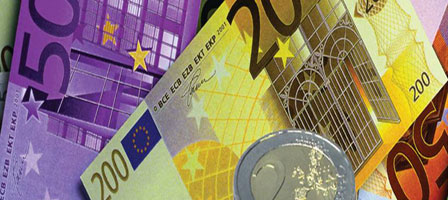This slowly-developing environment of greater tolerance towards easy-money policies makes it less likely that the European Central Bank will be prevented from implementing more unconventional measures, if they become necessary.
The bank has publicly mooted a menu of options including negative interest rates, long-term loans to banks and even large-scale asset purchases.
See the previous article which preceeded this article – Strong Euro, Weak Dollar
Will a shift towards some form of aggressive monetary policy stop the euro rising and send it into decline?
Possibly. But there is no certainty. The euro’s exchange rates will be determined not only by decisions taken in Frankfurt, but also by those taken elsewhere:
- The US Federal Reserve is “tapering” – implementing some very timid trimming of its aggressive easy-money policies – which so far has been too equivocal to have any dollar-strengthening effect. In trade-weighted terms, the greenback has been fluctuating within a comparatively narrow range for more than two years, although it’s currently at the bottom of that range.
A major change in Fed policies that would impact on the dollar’s global popularity seems very unlikely.
- Japan has been implementing the most aggressive money “printing” policy of any major nation. That could get a further boost if it becomes apparent that “Abenomics” is failing (as I have always feared it would). That would further weaken the yen, to the disadvantage of the euro.
- Although China’s financial situation is very different from America’s, its current posture is similar – there’s cautious trimming-back of policies that have been highly stimulatory. Although its tightly-controlled forex market is being manipulated to create uncertainty and burn speculators, weakening the yuan, a reversal in the long-term trend of strengthening in the Chinese currency is unlikely. That will be helpful to the euro.
- Britain pursued particularly aggressive “printing” in response to the global financial crisis, driving down the pound. But for five years its trade-weighted value has fluctuated within a comparately narrow range. It’s currently at the top of that range, largely due to pre-election stimulation of the housing sector. But sterling looks dangerously expensive. Any trend reversal would hurt the euro, especially as Europe is the UK’s most important trading partner.
next article: Conservative policies aren’t just good intentions
CopyRight – OnTarget 2014 by Martin Spring







